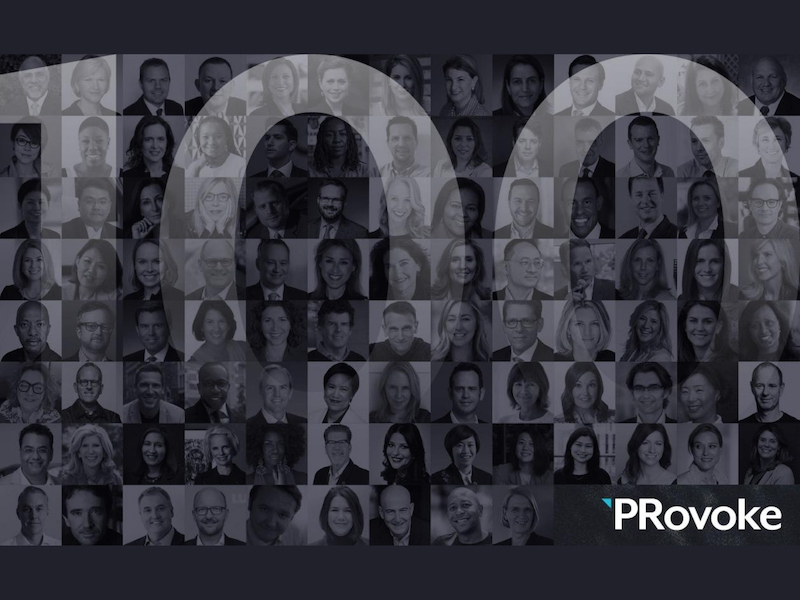Maja Pawinska Sims 05 Oct 2020 // 10:21AM GMT

LONDON — The corporate communications function is gaining in strength as a result of the extra – and extraordinary – pressures of the pandemic era for businesses of all sizes and sectors, according to a survey of leading CMOs and CCOs.
Surveyed for the PRovoke Media Influence 100 – our annual report on the world’s most influential in-house communications and marketing leaders – this year’s cohort were unanimous that a strong corporate communications team was now even more critical in areas such as reputation, social purpose, trust, storytelling, technology and relations with all stakeholders.
One respondent said: “The function is becoming increasingly important as we manage how and when to respond to social issues, and the current environment. Proactively telling our story to colleagues and all of our relevant stakeholders is becoming more critical.”
Another stated: “The relevance of the function will grow in those companies that want to be progressive and evolve at the pace of society. It will be more data driven and all outputs will be measured. It will operate in a similar way to political campaign 'war rooms'.”
When asked about their predictions for the future of the CCO and CMO roles within businesses, the responses were largely aligned. Most were convinced that there will be more integration and a blurring of the two roles, as in previous years, with one respondent saying: “You can expect to see closer collaboration and the potential merger of the CCO and CMO roles as the lines begin to blur and the growing need of aligned narratives and marketing activities.”
There was also a majority view that chief marketing and chief communications officers would become more important in businesses, and that both roles would be more tightly connected with business success as well as the pressure on businesses to think beyond shareholder value alone, and manage their reputations even more carefully.
One CCO said: “They will grow in importance with the realization that reputation is a major driver of value and market capitalization,” and another added: “These roles are more important than they have ever been. Businesses are under deep scrutiny as the world expects us to do good for the planet and for the people whilst keeping our eye on profits for the shareholders.”
Another CMO re-imagined the roles altogether: “I believe there is potential to redefine the role into a more powerful chief consumer officer role. A role that can connect all elements of your business that touch the consumer - removing silos and creating a more connected communications flow that puts consumers at the heart of everything you do.”
Others saw different kinds of developments for the roles within businesses, driven by how digitisation and commtech will influence the direction of business and communications: “It's an interesting dichotomy: we'll be using artificial or virtual means to create real relationships with key stakeholders. It’s a brave new world and the pandemic has accelerated efforts exponentially.”
The survey also provides insights into the greatest communications challenges they and their organisations are facing in lockdown. The four top responses – all cited by around half of the respondents – were travel and movement restrictions, customer disruption, workplace disruption and staff health and wellbeing. Sales or earnings were also high up the list, as was misinformation.
The report also covered changing attitudes to diversity in all its facets. In terms of racial diversity in particular, what CCOs and CMOs expect of their PR agencies has changed dramatically, with 86% of respondents saying they agree or strongly agree that their PR agencies must have an ethnically diverse team, up from 67% last year.
There is somewhat less conviction when it comes to whether the communications industry is committed to recruiting, retaining and promoting people of colour: 53% agreed or strongly agreed, compared with 47% last year and 37% in 2017.
A further 22% were neutral, down from 42% last year, and while in 2018 only 11% disagreed or strongly disagreed that the industry was committed to recruiting, retaining and promoting people of color, this year there was perhaps a more honest and uncomfortable response, with 25% of our Influence 100 disagreeing or strongly disagreeing that the industry was truly committed to resolving issues of racial inequity.
Profiles of the Influence 100 can be found here; insights into their demographics and background here; their budgets and how they manage agencies are here; and the brands and world-leaders they think are the best and worst communications – and the PR agencies they most admire – are here.



































.jpg)















